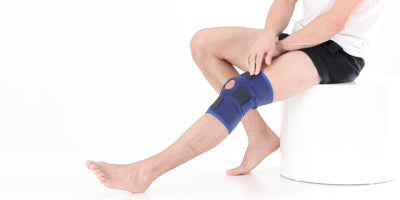Winter Wellness: 5 Health Tips To See Out The Winter Months

Spring is just around the corner, but as winter continues to cast its chilly spell, it's crucial to prioritize our health and well-being. With the festive holidays now in the rear-view mirror, the colder months now feel like they only bring the risk of seasonal illnesses and a dip in energy levels. Here, we'll explore five essential tips to help you navigate the final winter weeks with vitality and resilience. From boosting your immune system to staying active, these winter health strategies will not only keep you feeling your best but also set the stage for a smooth transition into the warmer, spring days ahead.
Boost Your Immune System
Boosting your immune system is paramount during the winter months when viruses and infections are more prevalent. The primary way you can boost your immune system is through diet. Ensure your diet is rich in immune-boosting nutrients by incorporating a variety of fruits, vegetables, whole grains, and lean proteins. Vitamins A, B6, B12, C and D and copper, folate, iron, selenium and zinc are all required for a well-functioning immune system.
Get Enough Sleep
Getting adequate sleep is crucial for maintaining optimal health and well-being. It's important to prioritize a consistent sleep schedule, aiming for 7-9 hours of quality sleep each night. Establishing a relaxing bedtime routine can help signal to your body that it's time to wind down, facilitating a smoother transition to sleep. Additionally, creating an optimal sleep environment is key; keep your bedroom dark, quiet, and cool to promote restful sleep and enhance overall sleep quality. By prioritizing these strategies, you can support better sleep habits and improve your overall health and vitality.
Practice Good Hygiene
Practicing good hygiene is essential for preventing the spread of illness and maintaining health. It's crucial to wash your hands frequently with soap and water for at least 20 seconds, particularly after being in public spaces or around individuals who are sick. When soap and water are not readily accessible, using hand sanitizer with at least 60% alcohol can effectively eliminate germs. Additionally, avoiding touching your face, especially your eyes, nose, and mouth, can help reduce the transmission of germs and minimize the risk of infection. By incorporating these hygiene practices into your daily routine, you can protect yourself and others from harmful pathogens and promote overall well-being.
Stay Hydrated
Really, you should stay hydrated all year round, drinking plenty of water! However, the winter months can present a particular hydration issue. Cold weather and indoor heating can lead to dehydration as moisture evaporates from the skin more quickly. Additionally, the body's thirst response may diminish in colder temperatures, making it easier to overlook the need for fluids. To combat dehydration, aim to drink plenty of water throughout the day, even if you don't feel thirsty. Herbal teas, warm broths, and soups are also excellent options to keep you hydrated while providing additional nutrients and warmth.
Stay Active
Staying active is vital for maintaining good health and well-being, especially during the winter months. Regular physical activity not only boosts the immune system but also enhances overall health. If outdoor exercise is hindered by cold weather or other factors, there are plenty of indoor alternatives to stay active, such as home workouts, yoga, or gym sessions. Aim for at least 150 minutes of moderate-intensity exercise per week to reap the full benefits of physical activity. By incorporating regular exercise into your routine, you can strengthen your immune system, improve your mood, and increase your energy levels, all of which contribute to a healthier and happier winter season.
If you need support while you stay active, check out our Fitness Collection of supports and braces which has been curated by our in-house physiotherapist. Included are Airflow Plus supports which are breathable and lightweight, ideal for physical activity. They are sized supports, knitted with Multi Zone Compression to give 360-degree support to your joints. They also feature silicone inserts which provide additional stabilization and protection.
These winter health tips underscore the importance of maintaining a robust defence against seasonal challenges. By focusing on strategies like immune system support, adequate sleep, hygiene practices, hydration, and regular physical activity, you can fortify your well-being during the colder months. As we anticipate the transition to spring, it's essential to sustain these health-conscious habits year-round. By prioritizing practical self-care measures, we empower ourselves to navigate the winter season with resilience and vitality, ensuring our health remains a steadfast priority.











